Main Menu
In the face of the climate emergency, nature-based solutions are gaining increasing recognition—particularly through blue carbon projects, which highlight the crucial role of coastal ecosystems such as mangroves, seagrasses, and salt marshes in carbon capture and storage. Beyond their mitigation potential, these projects carry opportunities for local development, especially for populations most exposed to the impacts of climate change.
In vulnerable coastal areas, local communities—particularly women—heavily depend on natural resources for their livelihoods. When implemented through inclusive and collaborative approaches, blue carbon projects can offer alternative income streams, strengthen local capacities, promote women’s empowerment, and enhance the socio- ecological and economic resilience of coastal territories.
However, these promises must be measured against on-the-ground realities: equitable benefit-sharing, inclusive governance, the recognition and integration of local knowledge, and fair redistribution mechanisms, among others.
This panel aims to take a critical look at the actual and potential contributions of blue carbon projects to vulnerable local communities, with a particular focus on the roles, opportunities, and benefits such initiatives can offer women. It will bring together experts, community representatives, NGOs, and project developers to share concrete experiences, identify challenges, and explore avenues for improvement.
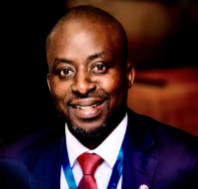
Mamadou Ndong Touré is a seasoned expert in climate change, green economy, and blue economy, with over fifteen years of experience in the design, implementation, and financing of adaptation programs across West Africa. A specialist in international climate finance (GCF, GEF, Adaptation Fund), he has successfully mobilized significant funding to enhance the resilience of vulnerable communities, particularly in Senegal and Sierra Leone.
He played a key role in establishing the Gandoul Community Marine Protected Area—an exemplary initiative combining local governance and sustainable fisheries management with biodiversity conservation and socio-economic development. He is also recognized for his expertise in nature-based solutions in coastal and urban areas affected by climate- induced displacement.
Trained in green economy and green jobs by the International Training Centre of the ILO, he has supported the development of low-carbon territorial strategies in partnership with local governments. A member of Senegal’s National Climate Change Committee, he actively contributes to several regional networks focused on adaptation and sustainable development. He works in French and is proficient in professional English.
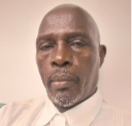
Colonel Abdoulaye Diop is a Senegalese ecologist and forestry engineer, widely recognized for his expertise in the sustainable management of protected areas—particularly marine and coastal zones. With over 30 years of service in environmental conservation, he has played a pivotal role in advancing mangrove protection in Senegal.
As Director of the Directorate of Community Marine Protected Areas (DAMCP) from 2012 to 2018, he led the development of the national strategy for MPAs and oversaw the creation of key sites such as Sangomar and Gandoul. A strong advocate for participatory and integrated management approaches, he contributed significantly to enhancing the ecological and economic resilience of wetlands, thereby strengthening the foundation of Senegal’s blue economy.
He is the author of a national methodological guide for the development of MPA management plans and was instrumental in the establishment of the Cayar MPA, where he successfully promoted the inclusion of local knowledge.
Awarded the title of Commander of the National Order of Merit, Colonel Diop retired in 2019 from his final post as Director of National Parks. Since 2020, he has served as President of the Nature-Communautés-Développement (NCD) association, which brings together a network of over 800 volunteers.
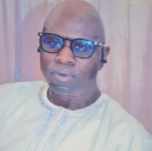
Daouda Kane is a Senegalese educator deeply committed to environmental protection and community development. Holding a high school diploma, he later specialized in project management, which he has applied across a wide range of initiatives.
As a leader of the Scouts and Guides of Senegal, he plays a key role in promoting civic and environmental education among youth. He also serves as the national focal point for the international ICCA Consortium, is Deputy Chair of the National Network for Environmental Protection (RENOPE), and is an active member of the Fimela district living lab and the technical committee of DYTAEL in Fatick.
A founding member and the current Executive Director of the NGO CAREM, Daouda Kane works daily to advance biodiversity conservation and promote territories and areas conserved by Indigenous Peoples and local communities (ICCAs). Through his multiple roles, he embodies strong local leadership in support of environmental sustainability and community well-being.
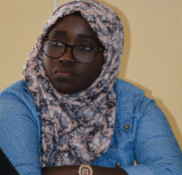
Technical Advisor for Mangroves and Fisheries in West Africa at Blue Ventures, an organization dedicated to community-based marine conservation. Awa Rane Ndoye is also a PhD candidate at Cheikh Anta Diop University in Dakar, where she is completing her dissertation on the effectiveness indicators of mangrove ecological restoration in Senegal.
With over four years of experience in coastal ecosystem research and management, Awa brings together scientific expertise and a strong community-centered field approach. She holds a Master’s degree in Botany and Biodiversity and has spent the past two years supporting participatory conservation initiatives and the development of sustainable strategies for artisanal fisheries with Blue Ventures.
Recently, she participated in the United Nations Ocean Conference (UNOC), where she presented her work on mangrove ecological restoration—a key issue for the resilience of coastal areas facing the impacts of climate change.
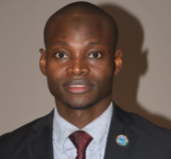
Commandant Modou Thiam is a Forest and Water Engineer with over eleven years of extensive experience in forestry and environmental management across West Africa, specializing in forest planning, reforestation, and the rehabilitation of degraded lands.
As Head of the Reforestation and Soil Conservation Division at the Directorate of Water and Forests, Hunting, and Soil Conservation, he led the development of Senegal’s National Reforestation Strategy and oversaw the organization of the 2021 National Tree Day and associated reforestation campaigns.
Currently, as Nature-Based Projects Coordinator for Africa at ALLCOT-Senegal, Commandant Thiam is deeply involved in Senegal’s commitments under the Paris Agreement on climate change, focusing on carbon finance mechanisms and the implementation of Nationally Determined Contributions (NDCs), particularly the forestry sector NDC. His expertise includes the development, execution, and monitoring of carbon projects with a strong emphasis on biodiversity conservation, community engagement, and gender integration, aligned with the Climate, Community & Biodiversity (CCB) Standards.
He leads the ABC Mangrove Senegal project, which aims to reforest 7,000 hectares of mangroves in the Saloum and Casamance regions, contributing significantly to ecosystem restoration and climate resilience.